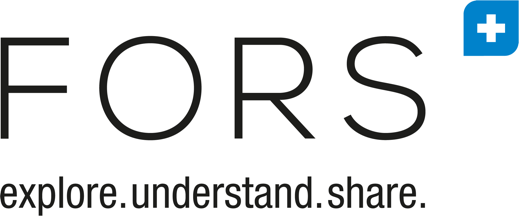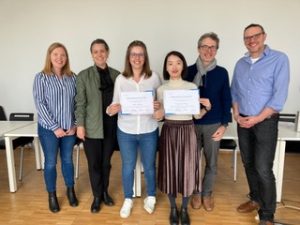 FORS Data Re-use Award
FORS Data Re-use Award
Are you currently working with social science data you got from FORS? Or are you planning to do so in the next few months? Then consider submitting your paper to the FORS Data Re-use Award and get the chance to win up to 1’000CHF. The FORS Data Re-use Award is given to young researchers who carry out excellent research that is based on secondary data.
- The manuscript must be based on data accessed via SWISSUbase.
- The data were not produced by any of the authors.
- The manuscript is a full paper. It can still be a work in progress but is not yet published. The author(s) plan(s) to submit it to a peer-reviewed journal.
- Research teams can submit papers. The first author must be an early career researcher (doctoral student or postdoc).
- The dataset is properly cited.
- The manuscript is written in English.
- Innovative use of the data
- Quality of the research design
- Quality of the empirical analysis
- Originality
- Relevance/impact
- Quality of writing and presentation
- Career stage
- Composition of the research team
The deadline for submission is October 1, 2023
The award will be given in November 2023 and the winner will be invited to present the paper in the FORS Lunch Seminar.
We are delighted to announce that the recipients of the latest FORS Data Re-use Award are:
Anna-Lena Nadler and Elif Naz Kayran, for their exceptional paper entitled “Local alien enfranchisement and external efficacy perceptions: intended and unintended effects on non-citizens and citizens”.
Examining the Swiss Household Panel data from 1999 to 2014, the authors investigate the impact of local alien enfranchisement on political influence perceptions among citizens and non-citizens. Findings indicate that inclusive enfranchisement policies heighten non-citizens’ sense of political influence without diminishing citizens’ efficacy. This highlights the potential of such policies to foster immigrant integration in diverse democracies.
We encourage you to read their paper published here.
The data underlying their research is available on SWISSUbase https://doi.org/10.48573/58nw-6a50.
First prize
Rita Schmutz (LIVES, University of Lausanne)
Inequality of Educational Opportunity in Switzerland: Exploring Regional Differences and Institutional Factors
The data can be found here: https://www.swissubase.ch/de/catalogue/studies/13413/18252/overview
Second prize
Mengling Cheng (LIVES, University of Lausanne)
The data can be found here: https://www.unil.ch/share/de/home.html
Second prize
Alessandro De Boni
Youth enfranchisement in Switzerland: an analysis from the Swiss Election Studies Selects (Master thesis)
The data can be found here: https://www.swissubase.ch/de/catalogue/studies/8862/18944/overview





 Bâtiment Géopolis,
Bâtiment Géopolis, +41 (0)21 692 37 30
+41 (0)21 692 37 30

